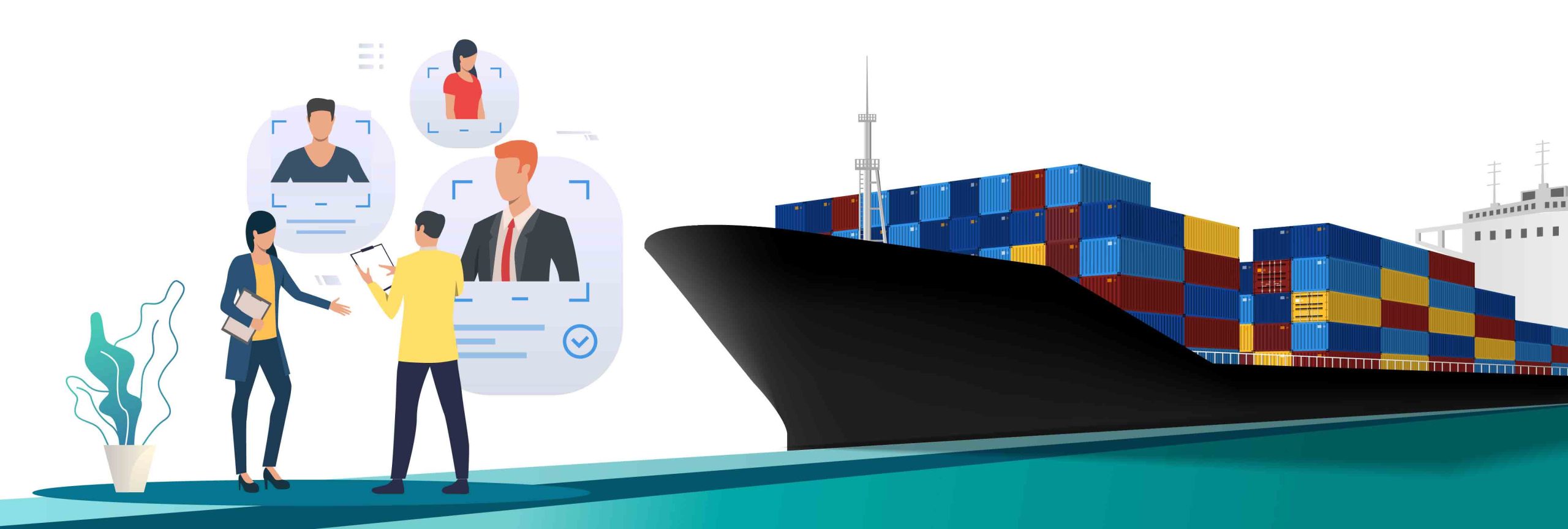
07 May Unlocking the human potential: Evolving HR skills in port operations
In the heart of bustling port cities, where the rhythm of Maritime trade beats incessantly, lies a silent revolution. It’s not about the towering cranes or the massive cargo ships; instead, it’s about the people who orchestrate this symphony of logistics. Human resource skills in port operations are transforming, propelled by the relentless march of technology and the ever-changing global trade landscape.Picture this: A massive cargo ship sits docked at a bustling port, awaiting clearance for its precious cargo. The clock is ticking, and every minute of delay means lost revenue and potential disruptions in the supply chain. In the past, port operations relied heavily on manual processes, bureaucratic red tape, and fragmented systems. But in today’s fast-paced world, such inefficiencies are no longer acceptable.
Enter the Maritime Single Window—a digital gateway that streamlines and integrates port processes, from vessel arrival to stay and departure. This technological marvel enhances efficiency, reduces paperwork, minimises errors, and accelerates the flow of goods. However, the successful implementation of a Maritime Single Window hinges not only on cutting-edge technology but also on the skills and capabilities of the human resources behind it.
In parallel, the emergence of next-gen Port Community Systems (PCS) is reshaping the landscape of port operations. These platforms serve as digital ecosystems, connecting various stakeholders—including port authorities, shipping lines, freight forwarders, regulatory agencies, and terminal operators—in a seamless network. Through real-time data exchange and collaboration, PCS and other enterprise automation tools optimise port processes, enhance visibility, and improve decision-making.
The adoption of these digital solutions is gaining momentum on a global scale. Ports worldwide embrace technology to stay ahead of the curve and remain competitive in the ever-evolving Maritime industry. Port authorities are investing in digital infrastructure and upskilling their workforce to navigate the complexities of the modern Maritime landscape.
However, the journey towards digital transformation is not without its challenges. As ports embrace automation and digitisation, the role of human resources is evolving rapidly. Traditional skill sets are no longer sufficient; instead, port operators need to cultivate a new breed of talent—one that is tech-savvy, adaptable, and agile. This necessitates a shift in mindset and investment in training and development programs tailored to the needs of the digital age.
Moreover, the regional context plays a crucial role in shaping the evolution of human resource skills in port operations. While developed economies may have access to advanced technologies and robust infrastructure, developing nations face unique challenges, including limited resources and capacity constraints. Therefore, a one-size-fits-all approach is not feasible; tailored strategies considering local needs and realities are essential.
The evolution of human resource skills in the Maritime industry is a journey marked by innovation, collaboration, and adaptation. As ports embrace digital transformation and leverage technologies, such as Port Community Systems powered by Blockchain, AI, Machine Learning, and IoT, the role of human resources becomes more critical than ever. By investing in the right talent, fostering a culture of continuous learning, and embracing change, ports can unlock their full potential and thrive in the digital age.

